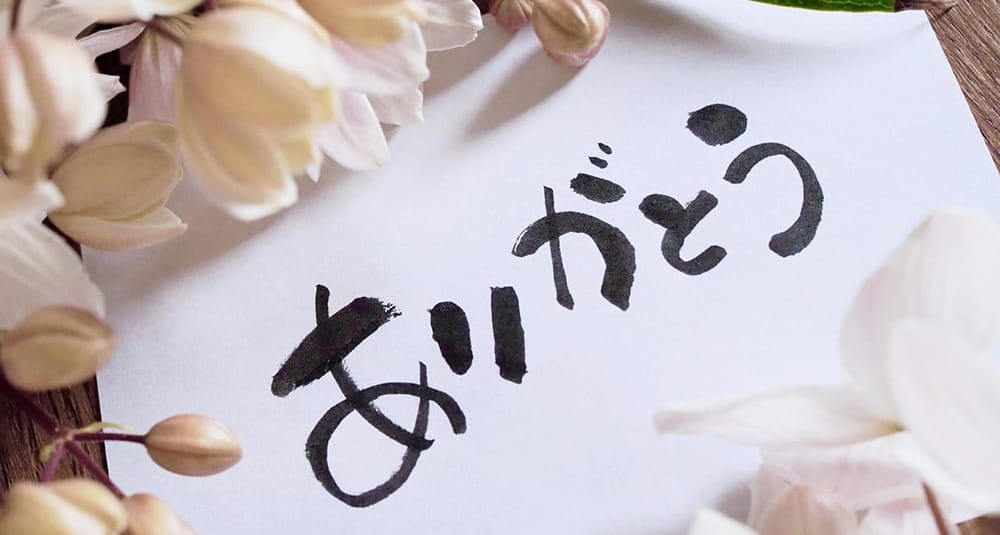Why ‘Arigatou’ Matters More Than You Realise
Gratitude in Japan isn’t just etiquette—it’s reputation management. Use it well, especially as a woman.

In Japan’s polished corporate corridors, few words carry as much weight - and strategic value - as “thank you.” While gratitude is a universal virtue, its role in Japanese work culture is more than politeness or etiquette - it’s a subtle form of social currency that shapes relationships, smooths over conflict, and builds influence in quiet but profound ways.
If you’re a woman navigating the complexities of Japanese office life - whether you’re Japanese or a foreigner - understanding how and when to say thank you (and in what form) can give you a unique edge.
Gratitude as a Social Glue in Hierarchical Cultures
In Japan’s group-oriented and seniority-based workplace, relationships are rarely built through boldness or self-promotion. Instead, they’re cultivated gradually through signals of trust, reliability, and deference. One of the most effective - and often underestimated - tools in this relationship-building process is gratitude.
Where Western corporate cultures might reward assertiveness or visibility, Japanese workplaces often respond more positively to those who demonstrate awareness of interdependence. Saying thank you signals:
- Recognition of others’ contributions, however small
- Respect for time, effort, and unspoken obligations
- A reaffirmation of social cohesion and mutual reliance
It’s not just manners. It’s tacit leadership through acknowledgment.
Not All “Thank Yous” Are Equal: The Nuances That Matter
In Japanese, there are several ways to express gratitude, each with its own shade of meaning depending on hierarchy, timing, and context:
- ありがとうございます (Arigatou gozaimasu): The standard, formal thank you. Use liberally, especially with seniors, clients, or cross-departmental teams.
- いつもありがとうございます (Itsumo arigatou gozaimasu): Adds depth by acknowledging consistency and effort over time - a powerful phrase for building rapport with support staff or mentors.
- ご対応いただきありがとうございます (Go-taiou itadaki arigatou gozaimasu): Used in emails to thank someone for handling a task - a professional standard that doubles as a soft power move in written communication.
- 助かりました (Tasukarimashita): Less formal, but emotionally resonant. Implies the person’s help had real impact - especially valuable in tight-knit teams.
Mastering the timing and tone of these phrases can subtly shift how you are perceived - from “pleasant colleague” to “respectful and capable collaborator.”
Gratitude as Reputation Management
Every thank-you exchanged - especially in front of others or in written form - becomes part of a professional narrative about you:
- Are you seen as someone who recognizes others’ work?
- Do you elevate others, or take help for granted?
- Are you the type to remember to thank the intern who stayed late - or only thank your boss?
And the reverse is true. If you constantly forget to say thank you (when it's culturally expected to do so), you may have unwittedly develop a reputation as someone who takes other people’s help for granted.
And this is doubly punishing for women in particular, who may find themselves navigating both gendered expectations and invisible emotional labor. So remember to thank strategically strategically to communicate your leadership, emotional intelligence, and attention to team dynamics.
Why Gratitude Runs Deep in Japanese History
Historically, Japanese society evolved with a strong awareness of social obligation (giri) and reciprocal empathy (on). These concepts, while no longer used in everyday language, still inform how gratitude operates today.
Unlike Western gratitude, which often emphasizes individual emotion (“I feel thankful”), Japanese gratitude often reflects the maintenance of social balance - a recognition of favors received, and the implied commitment to repay them through loyalty, diligence, or future support.
This is why a simple “thank you” in Japanese can feel heavier - it’s not just acknowledgment, it’s a marker of social alignment.
For Women: Leveraging Gratitude to Build Presence, Not Passivity
Women in the Japanese workplace can sometimes be boxed into overly polite or deferential roles - especially when saying “thank you” is associated with being “nice” rather than “competent.” But when used intentionally, gratitude becomes a tool of influence. Here’s how:
- Use gratitude to claim visibility: When thanking someone in a group setting, frame it to also highlight your own initiative. For example:“Thank you for your input during my presentation - it helped shape my approach.”ご意見ありがとうございました。プレゼンの方向性を考える上でとても参考になりました。(Goiken arigatou gozaimashita. Purezen no hōkōsei o kangaeru ue de totemo sankō ni narimashita.)This thanks both acknowledges others and subtly centers your contribution.
- Thank down the hierarchy, not just up: Gratitude is often performed upward, but when women openly express appreciation to junior colleagues or peers, it’s seen as inclusive leadership, not flattery.“Thanks for supporting the meeting preparation - it really helped everything go smoothly.”会議準備を手伝ってくれてありがとう。おかげでスムーズに進みました。(Kaigi junbi o tetsudatte kurete arigatou. Okage de sumūzu ni susumimashita.)
- In email communication, let your gratitude be precise, not generic: Instead of “Thanks as always,” try:“Thank you for reviewing the data ahead of schedule - your speed made it easier for me to meet the deadline.” 予定より早くデータをご確認いただき、ありがとうございました。おかげさまで締切に間に合いました。(Yotei yori hayaku dēta o go-kakunin itadaki, arigatou gozaimashita. Okagesama de shimekiri ni maniaimashita.)This strengthens alliances and shows strategic awareness.
Gratitude as an Assertive, Feminine Strategy
In Japanese work culture, where actions often speak louder than words, and modesty trumps self-promotion, gratitude is an elegant form of linguistic influence. For women, it is not a sign of submission - but a deliberate act of professional presence.
Every thank you - properly timed, clearly directed, and thoughtfully phrased - helps construct a workplace identity that is capable, considerate, and quietly powerful.



